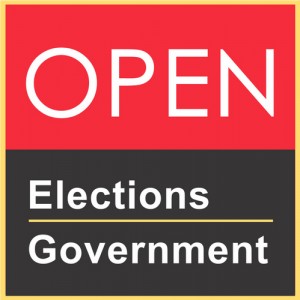Arizona Independents eyeing Open Elections/Open Government Act

The number of voters who refuse to affiliate with any political party continues to rise in Arizona. According to the most recent registration report from Arizona Secretary of State Ken Bennett, released late last month, Independents now account for 32.9% of the state's registered voters making the unaffiliated the second largest bloc of registered voters in the state, ahead of the Democrats and steadily gaining on Republicans. Only 30.5% of the state's voters are registered with the Democratic party and 35.6% continue to affiliate with the GOP.
Over the last fifteen years, the number and relative percentage of Independent voters in the state has more than doubled as voters have left the major parties in droves. In 1998, 44.7% of Arizona voters were registered Republicans, 40.3% were registered with the Democratic party and just 14.1% refused to affiliate with any political party. Given the current trend, it is only a matter of time before Independents constitute the largest share of the state's total electorate. And it may come to pass sooner than one might think.
"We're actually projecting that independents will outnumber both Republicans and Democrats by November," said Ted Downing of Independent Voting in a recent report for KTAR news.
Despite their numbers, Independents have no representation in the state's government, which is dominated by the Republican party. In the State Senate, there are 21 Republicans and 9 Democrats, while the State House has 40 Republicans and 20 Democrats. However, their influence is apparent in other ways, such as the state's Independent Redistricting Commission (IRC), which is chaired by an Independent. The IRC was created by a ballot initiative that was passed by voters in 2000.
This year, Arizona's Independents may be especially interested in another ballot initiative that would significantly alter the state's political system. The Open Elections/Open Government Act would alter the state's constitution to create a top-two open primary system like that passed by California voters in 2010. The Act is sponsored by an organization called the Open Government Committee, which is chaired by Paul Johnson, a prominent Independent and former Democratic mayor of Phoenix.
In order to qualify for the ballot, the initiative would need around 260,000 valid petition signatures by early July. The petition campaign was begun last summer and, according to Ballot Access News, the Open Government Committee has already collected 100,000 signatures in the effort. They are aiming for 300,000. A concurrent resolution that would create a top-two open primary system has been introduced into the state legislature by Representatives Chabin and Pancrazi.
Under top-two style primary systems, all candidates for a given office – regardless of party affiliation – appear on the same primary election ballot, and all voters – regardless of party affiliation – may vote in that election. The top-two vote-getters in the primary then proceed to the general election.
A poll from last November conducted by ASU's Morrison Institute for Public Policy found that 58% of Arizonans, including 67% of Independents, expressed support for such a system. On their website, the Open Government Committee writes:
“More and more voters believe our elections are closed affairs offering little choice and few results.”
Ironically, however, critics of top-two style primaries level the very same charge against that system, pointing out that it needlessly reduces the choices available to voters by ensuring that only two candidates appear on the general election ballot. Instead, they suggest alternative voting methods such as instant runoff or approval voting, or other electoral reforms such as the implementation of proportional representation.
See this article for previous coverage of the initiative at IVN.




